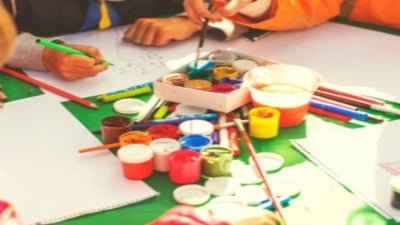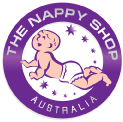Add description, images, menus and links to your mega menu
A column with no settings can be used as a spacer
Link to your collections, sales and even external links
Add up to five columns
Add description, images, menus and links to your mega menu
A column with no settings can be used as a spacer
Link to your collections, sales and even external links
Add up to five columns
Fun activities for kids that help them learn and grow
July 16, 2021 2 min read

Play is about much more than keeping a child occupied. While many of us may see play as nothing more than a bit of fun, it’s one of the most fundamental ways in which kids discover, learn and grow. Whether it’s as basic as shoving a square block through a square hole or something more complex, like playing make-believe with dolls and figurines, playtime teaches kids about themselves, others and the world around them.
That being said, parents will agree it’s not always easy to come up with new games for kids. Attention spans can be short, and what was fun yesterday might not cut it today. To help, we’ve put together a quick guide on the types of activities that will not only keep your child entertained but also help them learn and grow. Remember not to force anything too much: they’ll respond to the things that engage them the most. And don’t worry if their interest changes a little earlier or later than expected, the age groups below are just a guide!
Infants: 0 to 12 months
A child’s first year of life is very much about learning how their body moves and interacting with their immediate surroundings. Children in this age group tend to benefit from simple activities like:
- Free kicking
- Playing with a cot mobile
- Shaking a rattle
- Listening to words, sounds and simple music
- Touching and feeling different objects
Even the most basic things make for great playtime in this age group.
Toddlers: 1 to 3 years
Once babies start crawling, walking and getting better at using their body parts, they start to crave more stimulating activities that give them a deeper understanding of the world around them. Part of this phase is learning the purpose and nature of objects around them, so appropriate activities for this age group include:
- Scribbling with crayons
- Finger painting
- Stacking blocks
- Sorting shapes
- Basic make-believe
Try to engage all five senses across a range of different activities, and remember that they love to copy you! This may also be the time you begin toilet training.
Preschool age: 3 years and above
After a few years, kids’ minds are really kicking into gear. They start using games to build relationships, further improve motor skills, plan ahead and learn more complex problem-solving skills. Kids in this age group will also begin to grasp the meaning of symbols and start getting better at achieving a desired outcome. Try moving into:
- Basic arts and crafts
- Dress-ups
- Drawing
- Singing
- Guessing games
- Construction blocks
- Kitchen activities (like stirring ingredients and rolling dough)
As they get older, they’ll start showing more and more of their personality as they learn, grow and discover the things that make them tick. You’ll be their guide, but don’t forget to enjoy the ride!
Subscribe
Sign up to get the latest on sales, new releases and more …

Subscribe and Save!
Subscribe to our fortnightly newsletter to receive exclusive offers and discounts.
